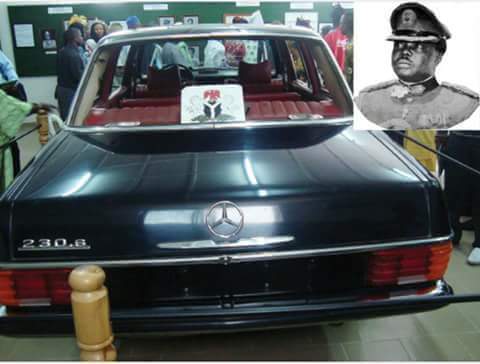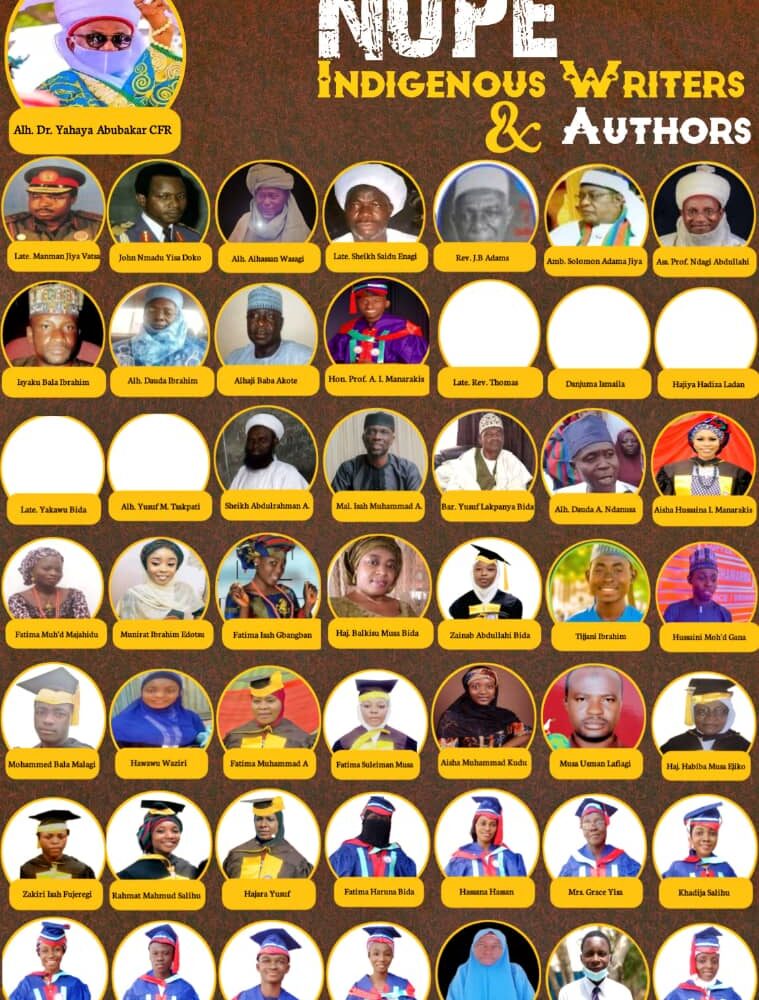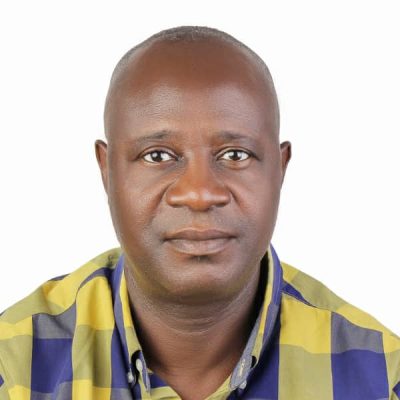“For too long we have paid lip service to issues of remolding our society, for too often we have talked glibly … of the birth of a new nation … now is the time to rethink, to reflect and to act.”
-Late Murtala Muhammed
That action was however short-lived when all the numerous dreams, hopes and expectations that the Late General Murtala Ramat Muhammed had for his beloved country Nigeria came to an abrupt naught. The quest for power in a form of cut-throat dimension, self-centered mannerism, primordial inclination cum nepotism and ego-centrism by a few disgruntled dissident soldiers did not allow him realize his laudably promising ambition of cleansing Nigeria from the debris and shackles associated to post-civil war ills and disequilibrium. These ill-motivated soldiers spared no time in wasting the precious life of Nigeria’s one of the finest leaders in the afternoon of Friday the 13th of February, 1976. It is precisely Forty-Six (46) years today.
General Murtala indeed came, saw, conquered and laid a concrete foundation upon which his successor Lieutenant General Olusegun Obasanjo and his lieutenants in the then Supreme Military Council like the Late Lt. Gen. Shehu Musa Yar’adua, Lt. General Theophilous Yakubu Danjuma (RTD.), Lt. Col. Ibrahim Badamasi Babangida (RTD), Lt. Col. Muhammadu Buhari (RTD.), Late Lt. Sani Abacha had to sustain the tempo and ensured that his hopes were not shattered, dreams realized and expectations achieved. General Olusegun Obasanjo (RTD.), on assumption of duty as the immediate successor to Late Murtala, was emboldened by the spirit, support, solidarity and loyalty he enjoyed from the Northern Military Officers led by Yar’adua and TY Danjuma who unapologetically continued with the reforms of Late Murtala, especially the transition to civilian rule that was scheduled to end in 1979.
In 1977, a Constitutional Conference was convened which recommended the replacement of the hitherto British-style Parliamentary System of Government with an American-style Presidential System of Government, thereby separating the Executive and Legislative branches into distinct entities with the Judiciary as the 3rd Arm of the Government in Nigeria.
Nigerians from all shades of leaning participated and contributed in no mean measure culminating in the emergence of the 1979 Constitution rated as one of the best in pre and post-independence Nigeria. To ensure that candidates would appeal to ethnic groups beyond their own, the President and Vice President were required to win at least 25 percent of the vote in at least two-thirds of the newly created 19 states in Nigeria. The new Constitution took effect in 1979. The restructured administration was called Nigeria’s Second Republic with a handing over power to Alhaji Shehu Usman Shagari on 1st October, 1979 by General Olusegun Obasanjo (RTD.) having won the 1979 Presidential Elections under the political party of National Party of Nigeria (NPN).
The other political parties that participated in the elections included the Great Nigeria People’s Party (GNPP) with Waziri Ibrahim as its flagbearer, Unity Party of Nigeria (UPN) with Late Chief Obafemi Awolowo as its flagbearer, People’s Redemption Party (PRP) with Late Mallam Aminu Kano as its flagbearer, Nigeria People’s Party (NPP) with Late Chief (Dr.) Nnamdi Azikiwe as its flagbearer and Nigeria Advance Party (NAP) with Late Tunji Braithwaite as its flagbearer.
While keeping to the dashed yearning and aspirations of his principal, General Obasanjo and his team put in place all the necessary machinery towards consolidating the 10-day old newly created states by Late Murtala. The States were: Bauchi, Benue, Borno, Imo, Niger, Ogun, Ondo, Oyo, Plateau, Sokoto, and the Federal Capital Territory (FCT). The aim of the 3rd February, 1976’s creation of the new States in Nigeria by General Murtala was solely to redistribute wealth not only amongst the 2nd Tier of Government but also to massively reform the local government system as the 3rd Tier of Government for the benefit of the grass root populace.
Though I was a toddler when General Murtala Muhammed was assassinated but being a student of politics who read through the teachings of the revolutionaries and scholars of this world such as the Fanons, Lenins, Cabrals, Nkurumahs, Ikokus, Socrates, Machiavellis, Platos, Aristotles, Luther Kings, Mao Zedongs, Fukuyamas, Huntingtons, Wilmots, Lumumbas, Sankaras, Rawlings, Sadats, Mazruis, Bala Usman et al, it is practically impossible for one to deny the fact that Murtala was indeed a Leader Par Excellence. He was a detribalized Kano-born Hausa/Fulani and a courageous soldier with an impeccable character who throughout his 38 years of existence in this world scorned injustice, indiscipline, indolence, dishonesty and above all corruption. He never misused the rare privilege that Nigeria had given him when he ruled it.
With his patriotic and nationalistic chauvinism, within his 200 Days reign, General Murtala easily became one of the greatest and shining men that ever ruled anywhere on the continent of Africa. It is therefore no wonder that since his assassination, the 13th day of February every year has been carved out for his special remembrance by Institutions of Government, International Bodies, Elder-statesmen, Students and other Non-Governmental Organizations by way of organizing symposium, lectures and seminars dwelling on some of his key unfinished policies and programmes with a view to educating the younger generations of Nigeria and Africa to tap on his legacies.
I could vividly recall on 13th February, 1999 when I was the President of National Association of Political Science and Administration Students University of Maiduguri Branch, the Association under my Leadership was privileged to organize a symposium at the famous Elkanemi Hall in ACADA; even though it was during the military regime of General Abdulsami Alhaji Abubakar, but because of the spirit associated with General Murtala, most of the crème de crème politicians and prominent personalities in Borno State honoured our invitation and the programme was covered by NTA Maiduguri Sunday Magazine as anchored by Lydia Nelson (later changed to Lydia Samson).
As Thomas Jefferson would say “Honesty is the first chapter in the book of wisdom….”, Brigadier Murtala on taking over power on 29th July, 1975, after overthrowing General Yakubu Gowon in a bloodless coup, moved to quickly and fearlessly address issues that Gowon had avoided. He replaced corrupt state governors. He purged incompetent and perceived corrupt members of the Public Service with their assets confiscated and transferred to the Federal Government and their bank accounts frozen. He also instigated a plan to move the nation’s capital from industrial, coastal Lagos to the hitherto neglected, interior hinterland of Abuja.
Abuja was carved out of former Benue-Plateau, defunct North-Central and North-Western States. Civilian rule, Murtala declared, would be restored by 1979 and he unveiled a transition programme.
General Muhammed’s concern for the unity, progress, harmony and cordiality amongst the heterogeneous segments of Nigeria was legendary. While addressing some religious leaders in Onitsha in September, 1975, he pointedly stated thus: “…the various religious bodies should not be found wanting in this drive to give our nation a new lease of life…” He was reiterating his resolve for saving Nigeria from the shackles of degradation and retrogression in his quest for perpetual solutions to the carcasses of post-civil war shenanigans and mundane cleavages.
However, all these principles and ideals that General Murtala stood and died for steadily got eroded as corruption and socio-cultural distrust amongst ordinary Nigerians orchestrated by successive leaders from all levels of government remained our bane. Notwithstanding, institutions/policies of Government such as WAI, WAI-C, ICPC, EFCC could be described as long-term dreams of Late Murtala Muhammed and to God be the Glory, his subordinates (boys) were the architects of all these enviable Institutions mentioned above as they did not disappoint him.
Furthermore, Murtala’s dream of making Nigeria an egalitarian nation by relocating the Nigeria’s Federal Capital Territory to Abuja was courageously realized in 1991 with the instrumentality of one of his finest officers (who later became the first and unarguably the last Military President of Nigeria) General Ibrahim Badamasi Babangida. Equally, the subsequent consolidation, development and growth of the Federal Capital Territory was religiously pursued by Late General Sani Abatcha. Both Generals Babangida and Abacha were Murtala’s Boys and undoubtedly with ABUJA becoming a REALITY despite the assassination of Murtala, one would without any scintilla of doubt conclude that, even at death, indeed his boys stuck to his dream and vigorously pursued it to fruition and to admiration of Nigerians.
No doubt that later in their respective climes and endeavours, God in his infinite mercy has compensated each of them with Authority, Influence, Leadership and Power. For instance, from 1976 till today, with the exception of Late President Shehu Usman Aliyu Shagari (who ruled from 1st October 1979 to 31st December, 1983), Nigeria has been under the leadership of Late General Murtala’s faithful and loyal boys directly or indirectly.
We may recall that General Babangida ruled Nigeria for eight (8) uninterrupted years (1985-1993). His modest contribution to nation building, especially with the creation of eleven (11) during his reign in addition to the hitherto nineteen (19) states bequeathed by Late General Murtala Muhammed remained fresh in the minds of Nigerians. Babangida handed over Thirty (30) number of States to Late Chief Ernest Shonekan on 26th August, 1993.
Late General Sani Abacha who clinched power in 1993 on the other hand, would have ruled Nigeria for as long as only Allah knows when but for divine intervention of 8th June 1998. He too had immensely and immeasurably contributed to the development of Abuja, especially in the area of housing-for-all policy. The Gwarimpa Housing Estate alone whose concept remained unmatched in the entire African Continent as far as housing policy is concerned has added some great impetus to the legacies of Late Murtala Muhammed as it was part of his long-term plan too. In tune with Murtala’s ideology, he too had created Six (6) States in Nigeria, thereby making him the last Head of State to have bequeathed the current thirty-six (36) States in Nigeria. May his gentle soul rest in perfect peace.
Equally, General Buhari’s effort before them too, especially in the area of battling with the cankerworm of corruption and indiscipline during his twenty (20) months of administration as Nigeria’s Head of State from (31st December 1983- 27th August 1985), would hardly be quantified. Former President Obasanjo (as President of Nigeria then) had even once while extolling his track record described him thus: “Muhammadu Buhari took any work given to him seriously. He was as reliable as he was hardworking and honest”.
When he along with some progressive minds in the military struck in the twilight of 31st December, 1983, like in Late General Murtala’s maiden speech to the nation on 29th July, 1975, General Buhari succinctly enthused that:
“‘…The change became necessary in order to put an end to the serious economic predicament and the crisis of confidence now afflicting our nation….this government will not tolerate kickbacks, inflation of contracts and over invoicing of imports et cetera”.
While corroborating Late Murtala’s patriotic zealotry, General Buhari concluded his speech this way: “this generation of Nigeria and indeed future generations have no other country than Nigeria. We shall remain here and salvage it together…”.
As Nigerians all over the world are today marking the Late Murtala’s 46th Anniversary with series of encomiums showered for the ingenuity and dynamic leadership he provided within just six months of his rule, it behoves on our present Nigerian political class to ponder on the genuine contributions and sacrifices made by Late Murtala in laying a solid foundation for the development of modern Nigeria of our dream.
Indeed, it is no more a news that Late General Murtala Muhammed gave his yesterday for our today as he died in the course of entrenching democracy, good governance and provision of greatest happiness to the greatest number as well as instilling high degree of discipline in our ways of life.
Finally, as the 2023 general elections into various political offices in Nigeria draw nearer and in the spirit and philosophy upon which Late General Murtala Muhammed fought, preserved, salvaged and sacrificed his life for Nigeria to be great, it is my fervent prayers that by the time the hues and razzamatazz about the Electoral Law Amendment, Zoning of Political Offices, especially for the Office of the President as well as North/South dichotomy and the hullaballoo about the assemblage of 100 Presidential Materials that cut across all political parties as convened by the 2022 Committee led by some eminent Nigerians in Lagos recently, Nigeria will surely and ultimately experience greatness and prosperousness notwithstanding the seeming socio-politico-cultural albatross.
God bless the Federal Republic of Nigeria.
MOHAMMED HABIB writes in from Abuja,can be reached at; [email protected]





